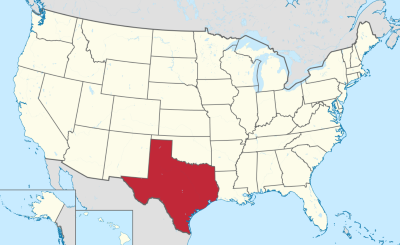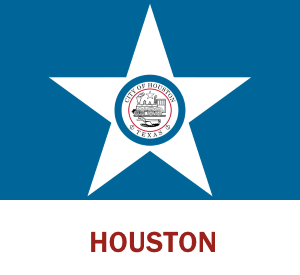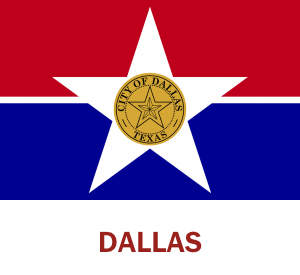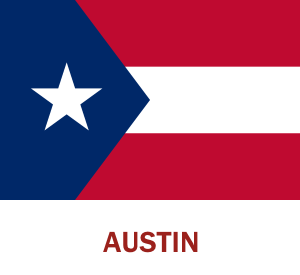Here you’ll find the largest list with Texas hosting reviews. We’ve listed all Texas web hosting providers with our UNCENSORED review and that of users.

Quick Facts
Internet Speed: 25 Mbps; 20 Mbps
Population: 28 million
Internet Coverage: 80% of residents
Main Internet Services: Cable, DSL, Fiber
Main Internet Service Providers: Time Warner Cable, AT&T
Colocation Datacenters: 170
Internet in Texas
According to Akamai.com, the average downlink Internet speed in Texas is 25 Mbps and the average uplink speed is 20 Mbps.
In 2016, the population of Texas was approximately 28 million. More than 80% of residents have access to the Internet, especially broadband connections.
Main Internet services provided in Texas are the following:
– Cable – over 90% coverage
– DSL – over 90% coverage
– Fiber – less than 15% coverage
Main Internet Service Providers located in Texas are as follows:
– Time Warner Cable (Cable) – 85% availability
– AT&T (DSL) – 80% availability
– AT&T (Fiber) – less than 20% availability
Gigabit Internet in Texas
In early 2015, Google Fiber announced that they would start rolling out gigabit Internet services to select local cities, and that one of the first recipients of this service would be Austin. As a direct response to this initiative, AT&T revealed their “GigaPower” plan, available in select areas, too. Other ISPs such as Time Warner Cable have shown interest in upgrading their Internet services, but no concrete details have been released in this matter. Due to the fact that Texas does not currently have a very large fiber infrastructure, gigabit Internet is provided through existing coaxial copper lines, using the latest DOCSIS 3.1 technology.
Colocation Datacenters in Texas
According to datacentermap.com, there are currently 170 colocation datacenters established in Texas. Most datacenters are located in Dallas (80), followed by Houston (39), Austin (23), and other smaller cities.
Main colocation providers established in Texas are the following:
– Digital Realty
– CyrusOne Datacenters
– Psychz Networks
– Cologix
– Quasar Datacenters
Prominent Colocation Companies
The biggest colocation provider located in Texas is Digital Realty. This company operates more than 20 colocation facilities established in the more developed cities of Texas, such as Dallas and Houston.
Digital Realty Facilities
In Dallas, they operate a total of 16 colocation datacenters. The biggest facility is located at 2323 Bryan Street, and features a total square footage of over 450,000. The datacenter specializes in providing wholesale and retail colocation services, in addition to other disaster recovery and business continuity solutions. It features redundant UPS power equipment, N+1 cooling system, as well as diverse security options. The datacenter ensures carrier neutrality, with on-premise access to over 5 telecom providers, including AT&T, Equinix, Verizon, etc. This location serves as a premier Internet gateway in the United States, serving the southwest headquarters for the Univision broadcasting network.
Colocation Industry in Texas
Texas is currently regarded as one of the most developed colocation industries in the United States. Current trends indicate strong growth in this market, as top multi-million-dollar companies continue to invest in the local technical infrastructure.
Advantages for Colocation
There are many advantages for colocation relative to other surrounding markets. Texas has relatively low utility rates, which remain attractive in the $.045 – $.053 per kWh range, in addition to a datacenter-friendly legislature which attracts numerous colocation providers. Furthermore, the Dallas/Fort Worth metroplex boasts unconditioned access to a large infrastructure of telecommunication fiber networks and electric power grids, making Texas one of the fastest-growing datacenter markets in the country.
Demand for Colocation
Demand for colocation services is driven preponderantly by financial, energy, as well as technology companies, in addition to other industry fields. Secondary demand is also driven by headquarter relocations and regional expansions.
Disadvantages for Colocation
On top of these advantages, there are numerous disadvantages that might discourage companies from building and clients from leasing space. These disadvantages are centered around the quick-trigger, tumultuous weather patterns that are not only very hazardous, but also rather impossible to predict in due course. Even though the colocation market, especially the DFW metroplex, is already popular as is, it goes without saying that if it had not been for the ever-changing weather, Texas would have been among the top 5 colocation markets in the United States.




